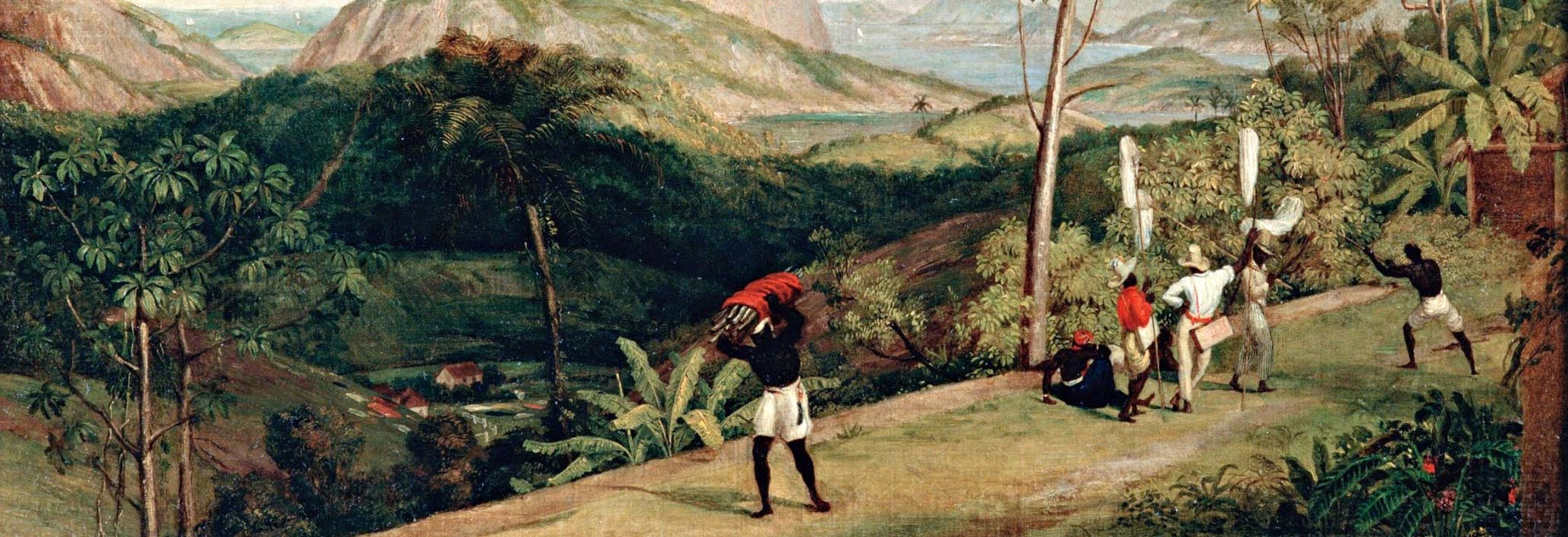Liberata (c. 1780s—nineteenth century), a woman and mother born into slavery in southern Brazil who endured a prolonged lawsuit for emancipation during the transition from colonial to independent rule in Portuguese America. Liberata’s case eventually made its way to the Corte de Apelação (Court of Appeals) in Rio de Janeiro, where hundreds of cases were heard that involved slaves suing masters for their freedom.
The circumstances of her birth are not documented, but we do know that at the age of 10 (c. 1790), an enslaved girl named Liberata was purchased by José Vieira Rebello, resident of Desterro (present-day Florianópolis), in the southern Brazilian captaincy of Santa Catarina. Sometime later, Vieira promised to free Liberata in exchange for sexual relations, to which she agreed. She became pregnant twice and bore two sons. The first one, named João (year of birth unknown), was baptized and recognized as the son of Liberata and Vieira. The second child was not registered as Vieira’s son, as Liberata was afraid she might be mistreated by her master’s family. One of the reasons for Liberata’s fear was the fact that she had witnessed the crimes committed by Anna, her master’s daughter, who had become pregnant with four illegitimate sons and aborted all of them.
Committed to changing her life, Liberata met a freed man named José, who wanted to marry her and agreed to pay for her manumission. Even though the couple obtained the approval of the local priest and offered to buy Liberata’s freedom, Vieira refused to manumit his slave. Liberata thus initiated a lawsuit against him in 1813, before Desterro’s city council, arguing that her master would not free her as he had previously promised. To defend himself against the accusations, Vieira resorted to a very common defense, claiming that he had given Liberata to his stepson Floriano José Marques, who was thus Liberata’s legal master. If the judge accepted that transaction as legal, Vieira’s promises would be nullified, as he was no longer her master.
For reasons that are not totally clear, in 1814, Liberata dropped the lawsuit against Vieira in exchange for conditional freedom extended by Marques. Rumors circulated that Marques had reached an agreement with Vieira, offering Liberata’s conditional freedom for a donation of land by Vieira. It is not known exactly why Liberata made her decision, but it is clear that Vieira did not want Liberata to make public the secrets surrounding his daughter’s abortions.
After receiving her freedom, Liberata married and had two more children, José and Joaquina. As she did not have the means to raise them, she asked Antonio Luis de Andrade, a major in the national guard, to do so, with the aim of teaching José an occupation, most likely as a tailor. However, such was not to be. When Andrade died, his widow tried to sell Liberata and her children as slaves. Both José and Joaquina, following their mother’s example, filed a lawsuit against Antonio Luis de Andrade’s heirs, alleging they were free because they had been born to a free mother. In 1835 both were judged to be free.
The cases of Liberata and her children were among many freedom-related lawsuits filed in nineteenth century Brazil, where legal enslavement endured until 1888. The records of such suits may be found in the numerous Brazilian archives. The collection for the Court of Appeals of Rio de Janeiro alone contains approximately four hundred freedom lawsuits that played out between 1808 and 1888. Half of these cases were decided in favor of slaves. Other freedom lawsuits, mainly tried in local courts in towns such as Campinas, in the interior of the province of São Paulo, and in Vassouras and Campos (in Rio de Janeiro Province), continue to be the subject of historical and anthropological research.
Among the many claims made by the slaves against their masters in the pursuit of freedom, one finds birth to a free mother, the promise of a letter of freedom, arrival in Brazil after the end of the legal slave trade (important for cases involving African-born slaves), mistreatment, and the attempts to buy their own manumission after being refused by the master. Throughout the nineteenth century, freedom lawsuits became an important legal resource for slaves who met the criteria to obtain manumission. After 1850, when the ban on trafficking of Africans to Brazil was finally put into practice, the abundance of rulings in favor of slaves contributed to the de-legitimization of the regime of slave labor and became a source of pressure for the abolition of slavery.
Read the full, original biography by Keila Grinberg in the The Dictionary of Caribbean and Afro-Latin American Biography.Online Resources
The Brazilian Report. “Slavery in Brazil.” Wilson Center, 13 May 2020, https://www.wilsoncenter.org/blog-post/slavery-brazil.
Bibliography
Brana-Shute, Rosemary, and Randy Sparks, eds. Paths to Freedom: Manumission in the Atlantic World. Columbia: University of South Carolina Press, 2009.
Grinberg, Keila. Liberata, a lei da ambiguidade: As ações de liberdade da Corte de Apelação do Rio de Janeiro—século XIX. Rio de Janeiro: Relume Dumará, 1994.
Grinberg, Keila, and Sue Peabody. Slavery, Freedom and the Law in the Atlantic World. Boston: Bedford, 2007.
Author
Keila Grinberg
Adapted by
Jennifer Mojica Santana
Contributing Institutions
Hutchins Center for African & African American Research, Harvard University, Cambridge, MA.
Oxford University Press (USA) African American Studies Center





